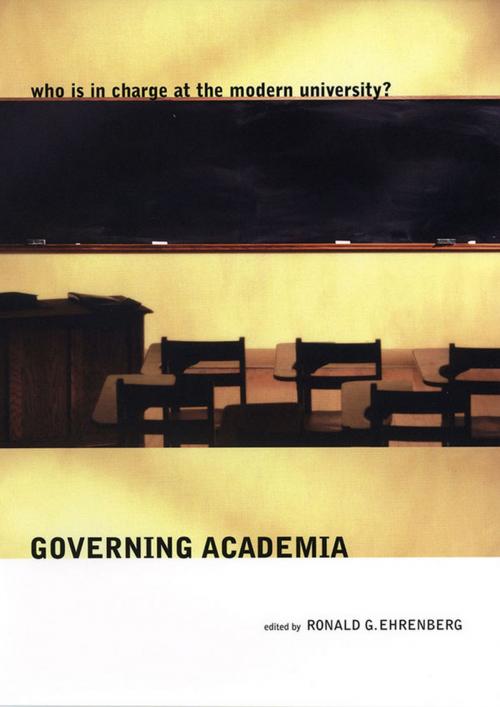Governing Academia
Who is in Charge at the Modern University?
Nonfiction, Reference & Language, Education & Teaching, Educational Theory, Leadership, Administration| Author: | Ronald G. Ehrenberg | ISBN: | 9781501704758 |
| Publisher: | Cornell University Press | Publication: | October 1, 2016 |
| Imprint: | Cornell University Press | Language: | English |
| Author: | Ronald G. Ehrenberg |
| ISBN: | 9781501704758 |
| Publisher: | Cornell University Press |
| Publication: | October 1, 2016 |
| Imprint: | Cornell University Press |
| Language: | English |
Public concern over sharp increases in undergraduate tuition has led many to question why colleges and universities cannot behave more like businesses and cut their costs to hold tuition down. Ronald G. Ehrenberg and his coauthors assert that understanding how academic institutions are governed provides part of the answer.Factors that influence the governance of academic institutions include how states regulate higher education and govern their public institutions; the size and method of selection of boards of trustees; the roles of trustees, administrators, and faculty in shared governance at campuses; how universities are organized for fiscal and academic purposes; the presence or absence of collective bargaining for faculty, staff, and graduate student assistants; pressures from government regulations, donors, insurance carriers, athletic conferences, and accreditation agencies; and competition from for-profit providers.Governing Academia, which covers all these aspects of governance, is enlightening and accessible for anyone interested in higher education. The authors are leading academic administrators and scholars from a wide range of fields including economics, education, law, political science, and public policy.Contributors: Ronald G. Ehrenberg, Cornell University; James O. Freedman, Dartmouth College; Thomas H. Hammond, Michigan State University; Donald E. Heller, Pennsylvania State University; Benjamin E. Hermalin, University of California, Berkeley; Gabriel E. Kaplan, University of Colorado; Adam T. Kezsbom, Cornell University; Daniel B. Klaff, Cornell University; Susanne Lohmann, University of California, Los Angeles; Matthew P. Nagowski, Cornell University; Michael A. Olivas, University of Houston Law Center; Brian Pusser, University of Virginia; Sarah E. Turner, University of Virginia; John D. Wilson, Michigan State University
Public concern over sharp increases in undergraduate tuition has led many to question why colleges and universities cannot behave more like businesses and cut their costs to hold tuition down. Ronald G. Ehrenberg and his coauthors assert that understanding how academic institutions are governed provides part of the answer.Factors that influence the governance of academic institutions include how states regulate higher education and govern their public institutions; the size and method of selection of boards of trustees; the roles of trustees, administrators, and faculty in shared governance at campuses; how universities are organized for fiscal and academic purposes; the presence or absence of collective bargaining for faculty, staff, and graduate student assistants; pressures from government regulations, donors, insurance carriers, athletic conferences, and accreditation agencies; and competition from for-profit providers.Governing Academia, which covers all these aspects of governance, is enlightening and accessible for anyone interested in higher education. The authors are leading academic administrators and scholars from a wide range of fields including economics, education, law, political science, and public policy.Contributors: Ronald G. Ehrenberg, Cornell University; James O. Freedman, Dartmouth College; Thomas H. Hammond, Michigan State University; Donald E. Heller, Pennsylvania State University; Benjamin E. Hermalin, University of California, Berkeley; Gabriel E. Kaplan, University of Colorado; Adam T. Kezsbom, Cornell University; Daniel B. Klaff, Cornell University; Susanne Lohmann, University of California, Los Angeles; Matthew P. Nagowski, Cornell University; Michael A. Olivas, University of Houston Law Center; Brian Pusser, University of Virginia; Sarah E. Turner, University of Virginia; John D. Wilson, Michigan State University















